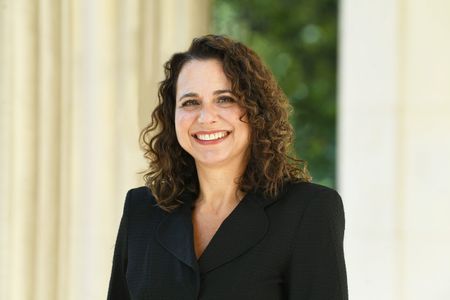We are honored to have Professor Sandra Black from Columbia University visiting us virtually on November 20th. This is an event in the series of Distinguished Women in Economics at BU. The day featured a lecture highlighting Professor Black’s experience as a female research economist, a research seminar, and individual meetings with students and faculty members.

Schedule
| 10:00 – 11:00 am | WEorg Lecture |
| 11:15 am – 12:45 pm | Individual Meetings |
| 12:45 – 2:00 pm | Lunch Break |
| 2:00 – 3:00 pm | Individual Meetings |
| 3:30 – 5:00 pm | Research Seminar |
WEorg Lecture: This is a 45-minute talk followed by a short 15 minute Q&A session. This lecture is designed to highlight Professor Black’s personal experience as a female research economist.
Research Seminar: “Where Does Wealth Come From? The Determinants of Wealth over the Lifetime” (Joint work with Paul Devereux, Fanny Landaud, and Kjell Salvanes)
Abstract: There has been much attention given to rising wealth inequality in recent decades. However, understanding this trend requires an understanding of where wealth comes from. Using administrative data from Norway, we create a measure of potential wealth—which abstracts from differential consumption and spending behavior—to examine how this measure relates to the observed net wealth of individuals at a point in time, as well as the role played by different components of wealth in the distribution of potential wealth. We find that net wealth is a reasonable proxy for potential wealth, particularly in the tails of the distribution; importantly, people in different parts of the potential wealth (or actual net wealth) distribution get their wealth from very different sources. Labor income is the most important determinant of wealth, except among the top 1% where capital income and capital gains on financial assets become important. Inheritances and gifts are not an important determinant of wealth, even at the top of the wealth distribution. Finally, although inheritances are not important, parental wealth does influence child’s wealth; children of wealthy parents accumulate wealth from very different sources than children of less wealthy parents.
About Professor Sandra Black
Sandra E. Black is Professor of Economics and International and Public Affairs at Columbia University. She was just elected to become a member of the executive committee at the American Economic Association this October. Professor Black is also a part of the Committee on the Status of Women in the Economics Profession (CSWEP) Board and the AEA Standing Committee on Equity, Diversity, and Professional Conduct. She is an Editor of the Journal of Labor Economics, a Research Associate at the National Bureau of Economic Research (NBER) and the Director of the NBER Study Group on Economic Mobility.
Professor Black’s research focuses on the effects of early life experiences on long-run outcomes among children, such as their cognitive skills, schooling and labor market outcomes. Her papers are published in Review of Economic Studies, Review of Economics and Statistics, American Economic Journal: Applied Economics and so on. Read more about Professor Black’s research here.
Professor Black will also be a keynote speaker at the 2021 Society of Economics of the Household (SEHO) on May 24-25 at Boston University.